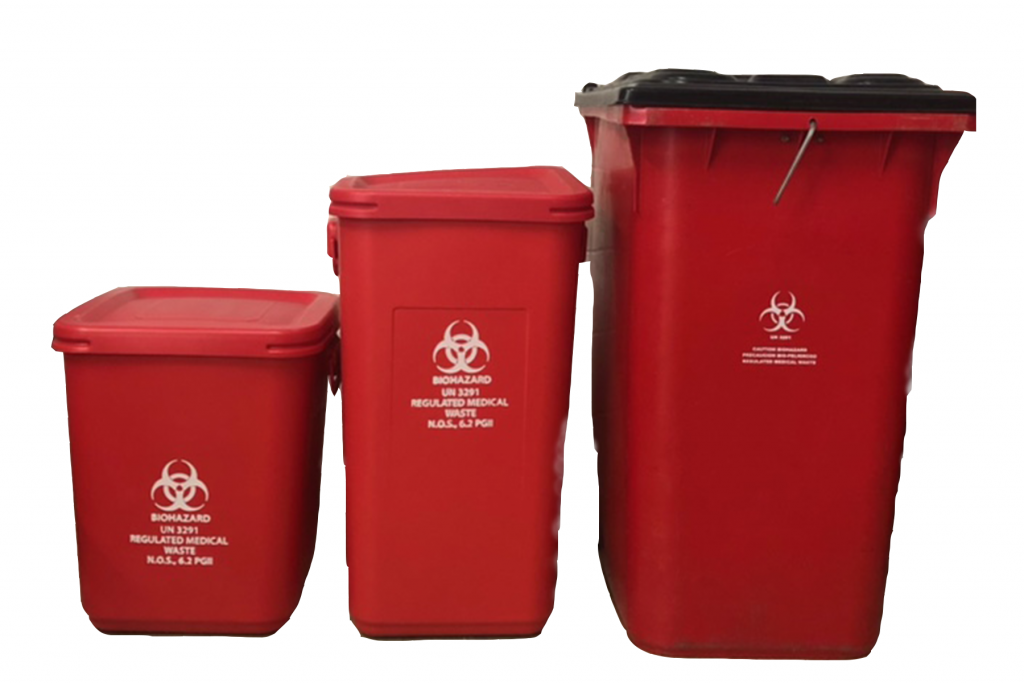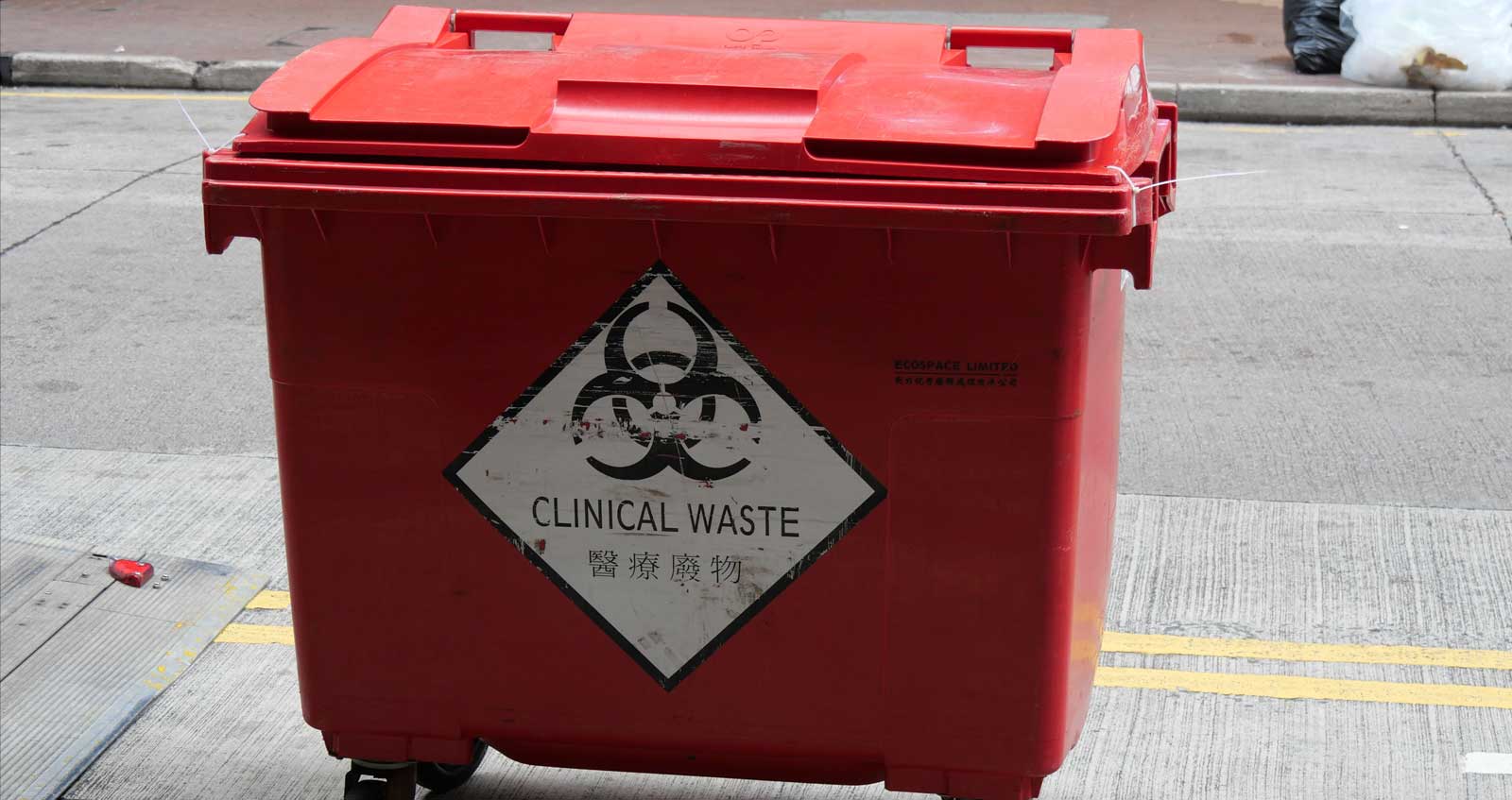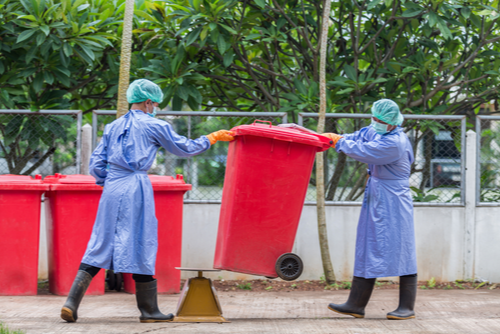Guardians of Sanitation: Citizen Medical Waste Removal Service for Your Satisfaction
Guardians of Sanitation: Citizen Medical Waste Removal Service for Your Satisfaction
Blog Article
Keep Ahead of Regulations: Expert Guidance on Medical Garbage Disposal
In a globe where the healthcare industry is continuously progressing, it is important for medical facilities to remain in advance of guidelines when it involves the correct disposal of clinical waste. With stringent guidelines and frequent regulatory changes, it can be challenging to navigate the complexities of this process. With professional guidance, facilities can guarantee compliance and reduce risks associated with improper waste disposal. From recognizing the various classifications of medical waste to executing the best collection and segregation approaches, this conversation will certainly supply workable suggestions and valuable understandings to assist facilities stay in advance of regulations in the ever-changing landscape of clinical waste disposal.
Recognizing Medical Waste Categories
Comprehending medical waste classifications is important for correct disposal and administration in medical care facilities. Medical waste describes any waste created by health care tasks that may posture a risk to public wellness or the environment. It is critical to categorize clinical waste properly to ensure its risk-free handling, transportation, treatment, and disposal.
There are a number of groups of medical waste that health care centers require to be familiar with. The most usual categories include contagious waste, pathological waste, sharps waste, pharmaceutical waste, and chemical waste. Each category has certain standards and regulations for its appropriate monitoring and disposal.
Infectious waste includes products infected with blood or other bodily liquids, such as handwear covers, dress, and research laboratory societies. Pathological waste describes human tissues, organs, or body parts that require special delivery and disposal. Sharps waste includes used needles, syringes, and other sharp objects that can cause injury and transfer infections. Pharmaceutical waste makes up expired, unused, or contaminated medications that need mindful handling and disposal. Chemical waste consists of solvents, anti-bacterials, and various other chemical materials utilized in health care facilities.
Remaining Up-To-Date With Regulatory Modifications
Staying current with regulatory adjustments is crucial for healthcare centers to ensure compliance and correct monitoring of clinical garbage disposal. medical waste removal services. With guidelines regularly progressing, it is necessary for health care facilities to stay current to stay clear of fines, penalties, and prospective harm to the environment and public wellness
To stay ahead of regulatory changes, medical care facilities should develop a system for monitoring and monitoring updates. This can be done by signing up for regulatory newsletters, going to workshops and meetings, and actively taking part in industry organizations. Additionally, centers ought to designate a team member or team in charge of remaining notified and sharing info to pertinent stakeholders.
Regular interaction with regulatory companies is additionally essential. Medical care facilities must establish connections with local, state, and government firms to ensure they are aware of any type of adjustments in regulations that might impact their waste administration techniques. This can be done with regular meetings, engagement in public comment durations, and positive engagement with regulatory companies.
Additionally, healthcare centers need to consider partnering with waste management companies that concentrate on medical garbage disposal (medical waste disposal services with WasteX). These business are frequently skilled in the most up to date policies and can provide guidance and support to ensure conformity
Executing Correct Collection and Partition Approaches
To effectively manage medical waste disposal, healthcare facilities should establish proper collection and segregation methods according to regulatory guidelines. Implementing these methods ensures the safe handling and disposal of possibly hazardous products, shields the setting, and reduces the danger of injuries and infections to health care workers and the public.
Proper collection and partition approaches entail the usage of assigned containers and labeling systems. Healthcare centers must offer clearly labeled containers for various sorts of medical waste, such as sharps, infectious waste, pharmaceutical waste, and non-hazardous waste. These containers should be color-coded and plainly significant to avoid complication and advertise easy recognition.
Furthermore, health care facilities must train their staff on the proper procedures for collecting and setting apart medical waste. This consists of informing them on the different kinds of waste, the suitable containers to use, and the importance of adhering to guidelines and laws. Routine training sessions and correspondence course ought to be performed to make sure that staff participants remain updated on best techniques.
Additionally, healthcare centers should develop a system for normal collection and disposal of clinical waste. This may include partnering with licensed waste medical waste disposal services with WasteX monitoring business that specialize in clinical waste disposal. These firms will make sure that the collected waste is moved and thrown away in compliance with governing requirements.
Selecting the Right Disposal Approaches

Incineration is among one of the most reliable and usual approaches for throwing away particular types of medical waste, such as pathological waste and sharps. It includes the regulated burning of waste at high temperature levels, minimizing it to ash. Incineration can release hazardous toxins right into the air and add to air pollution.

Various other disposal methods consist of chemical therapy, microwave therapy, and landfilling. Chemical therapy includes using chemicals to counteract the waste and decontaminate. Microwave therapy utilizes microwave power to warmth and disinfect the waste. Landfilling includes hiding the waste in a marked garbage dump navigate to these guys area (medical waste disposal services with WasteX). Landfilling must be the last hotel due to the prospective risk of contamination to dirt and groundwater.
Making Sure Conformity With Paperwork and Training
After meticulously thinking about the ideal disposal approaches for clinical waste, health care facilities must guarantee compliance with guidelines and reduce ecological impact by applying effective paperwork and training treatments. This action is crucial in maintaining a risk-free and sustainable atmosphere for both medical care workers and the general public.

Health care employees who deal with medical waste should get proper training on waste segregation, taking care of, and disposal procedures. By from this source giving comprehensive training, health care facilities can encourage their team to make enlightened choices and reduce the danger of improper waste disposal.
Final Thought
To conclude, staying in advance of guidelines in clinical waste disposal is essential for health care centers. medical waste removal near me. Understanding the different groups of clinical waste, remaining updated with governing adjustments, implementing proper collection and partition methods, choosing the appropriate disposal techniques, and ensuring compliance with documents and training are all crucial actions. By complying with these standards, health care organizations can efficiently take care of and dispose of medical waste in a safe and responsible fashion
From recognizing the different categories of clinical waste to carrying out the appropriate collection and segregation approaches, this conversation will certainly supply workable pointers and important understandings to aid facilities stay ahead of policies in the ever-changing landscape of medical waste disposal. - medical waste disposal services with WasteX
The most common groups consist of infectious waste, pathological waste, sharps waste, pharmaceutical waste, and chemical waste. Healthcare facilities need to offer clearly classified containers for various kinds of medical waste, such as sharps, contagious waste, pharmaceutical waste, and non-hazardous waste. Medical care facilities must develop a detailed system to videotape and track all aspects of medical waste disposal, including kinds of waste created, quantities, and disposal methods utilized. Medical care workers who deal with clinical waste should receive ideal training on waste segregation, handling, and disposal procedures.
Report this page